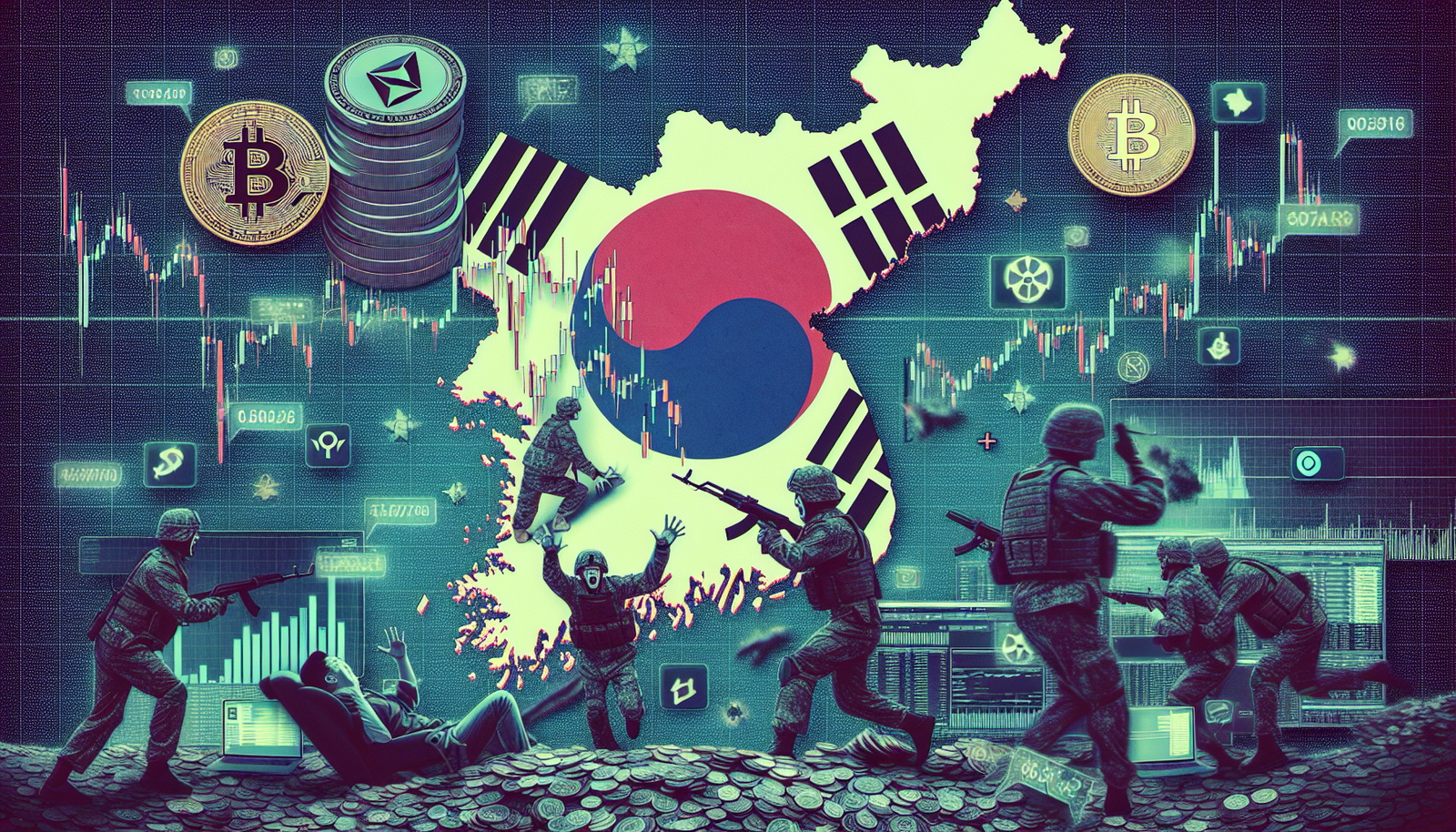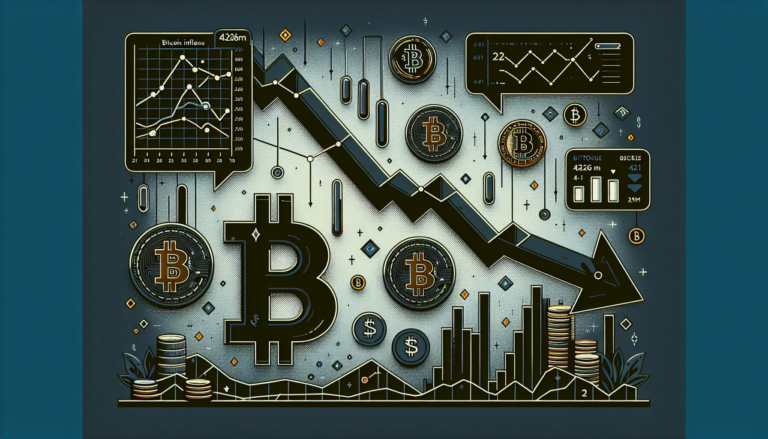South Korea’s Martial Law Shakes Up Cryptocurrency Market Stability
In a surprising twist of events, South Korea has found itself in the throes of an emergency martial law, sending shockwaves through the already turbulent cryptocurrency market. This unexpected move has left investors, traders, and enthusiasts grappling with the implications of government intervention in the dynamic world of digital currencies. As the dust settles, we take a closer look at what this means for the future of cryptocurrencies and the broader financial landscape.
The Context: What Led to Martial Law?
Martial law is typically associated with military control over normal civilian functions of government, usually imposed during emergencies. South Korea’s current situation stems from a series of escalating socio-political tensions and public unrest. In the past year, the government has faced fierce criticism over various issues, including economic inequality and the rising cost of living. Amidst these challenges, the COVID-19 pandemic has exacerbated the situation, pushing several political and economic decisions to the forefront.
The final straw appeared to be the protests demanding stronger action from the government regarding economic instability and financial inequities. In an attempt to regain control and restore order, the South Korean government declared a state of emergency, leading to the imposition of martial law. This drastic step shocked many, but what’s more shocking is the direct correlation to the cryptocurrency market.
The Immediate Impact on Cryptocurrency Markets
As news of the martial law broke, cryptocurrency prices took a nosedive. Major coins like Bitcoin, Ethereum, and Ripple experienced significant declines within hours. Investors scrambled to move their assets, fearing the ramifications of government control over financial markets.
- Bitcoin dropped from $45,000 to $38,000 in just a few hours.
- Ethereum followed suit, falling from $3,200 to $2,700.
- Ripple saw its price plummet from $0.85 to $0.60.
This volatility is typical in the crypto world, where panic selling can trigger rapid price declines. However, the severity of these drops reflected the underlying fear of increased regulation and potential restrictions on cryptocurrency trading in South Korea.
Why South Korea Matters in the Crypto World
South Korea has long been regarded as a major player in the cryptocurrency market, accounting for a substantial portion of global trading volume. With a tech-savvy populace and a robust digital infrastructure, the country has become a hub for cryptocurrency investment and innovation. The South Korean government has previously been both supportive and skeptical of cryptocurrencies, leading to a mixed regulatory landscape.
The country’s fluctuating stance has kept investors on their toes. On one hand, initiatives to regulate the market offer legitimacy; on the other hand, proposals for stricter controls can send the market into chaos.
Investor Sentiments: Navigating Uncertainty
The declaration of martial law has understandably shaken investor confidence. Many traders are now in survival mode, looking for ways to protect their investments. Here are some common sentiments swirling in the market:
- Fear of Regulation: Investors fear that martial law will lead to tighter regulations on cryptocurrencies, limiting their ability to buy, sell, and trade.
- Desire for Stability: Some longer-term investors express a desire for stability, believing that once the political tensions subside, the market could rebound.
- Market Manipulation Concerns: With government intervention, concerns about market manipulation have risen, leading to skepticism about the integrity of trades.
During turbulent times, many investors seek refuge in stablecoins or more traditional investments, reflecting their desire for security.
Potential Long-Term Effects
While the immediate effect of martial law on the cryptocurrency market is clear, the long-term effects may be less predictable. Here are a few possible scenarios:
- Increased Regulation: If the government enforces stricter regulations as a response to civil unrest, it may lead to a more stable market in the long run, albeit with less freedom for investors.
- Market Adaptation: The crypto market is notorious for its ability to adapt. Traders may find ways to navigate new regulations, potentially leading to innovative trading practices.
- Investor Exodus: Some investors may choose to move their assets to more crypto-friendly jurisdictions, leading to a potential decline in South Korea’s crypto market significance.
Nevertheless, predictions in the crypto space carry significant uncertainty. An inherent aspect of cryptocurrencies is their volatility, and this will likely continue to be influenced by broader socio-political events.
Your Next Steps as an Investor
For those wondering how to navigate the current crypto landscape in light of South Korea’s martial law, consider the following strategies:
- Stay Informed: Regularly check credible news sources and updates regarding the situation in South Korea.
- Diversify Your Portfolio: Consider diversifying your investments to mitigate risk. Look into stablecoins, which can provide a buffer against market volatility.
- Engage in Community Discussions: Participate in crypto forums and groups to stay connected with other investors and exchange insights.
As we navigate these challenging times, it’s crucial to remember that the cryptocurrency market possesses resilience. For further insights and strategies on investing during uncertain times, be sure to visit Neyrotex.com.
Global Implications of South Korean Martial Law
South Korea is not the only country to grapple with the challenges of regulating emerging technologies. As governments worldwide assess how to handle cryptocurrencies, the South Korean model may become a case study for others. The implications of martial law extend beyond borders, as countries observe and react to South Korea’s decisions.
- Countries with developing crypto markets may look to South Korea for guidance on regulatory strategy.
- Governments might be encouraged to take stricter actions against decentralized finance (DeFi) projects based on South Korea’s path.
- Increased scrutiny on crypto exchanges and trade practices may become a global trend.
The interplay between government intervention and market freedom remains a critical point of discussion for global investors and regulators alike.
Conclusion: A New Era for Cryptocurrencies?
As South Korea navigates this turbulent period, the fate of its cryptocurrency market hangs in the balance. The declaration of martial law presents both challenges and opportunities for investors, shaping a new landscape in which to operate. For many, the current environment serves as a vivid reminder that the world of digital currencies is interwoven with global socio-political dynamics.
For those heavily invested in cryptocurrencies, staying informed and adaptable will be key to weathering the storm ahead. The martial law situation brings an air of unpredictability, but as history has shown, the crypto market has an uncanny ability to surprise us. To keep updated on the unfolding events and related news, don’t forget to check Neyrotex.com. The coming weeks will reveal whether South Korea’s martial law will lead to renewed stability or further chaos in the cryptocurrency landscape.




